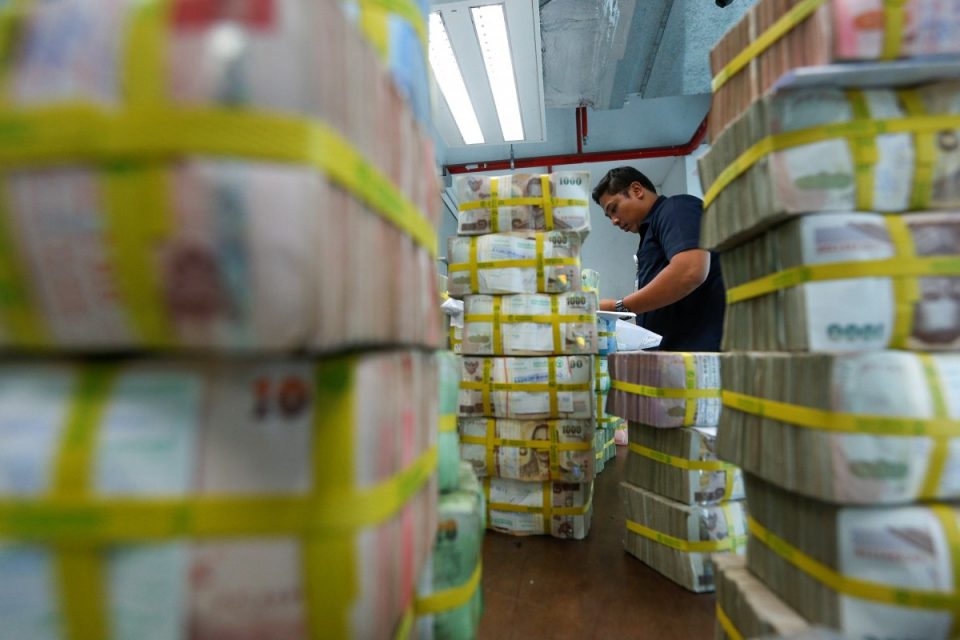The Thai baht is expected to strengthen further as the escalation of the China-US trade war hastens foreign capital inflows into Thailand’s “safe haven” bond market while the US Federal Reserves may again cut interest rates.
The ongoing tit-for-tat superpower trade conflict has intensified with China announcing on August 23 a set of preparatory tariffs of between 5 to 10 percent on $75 billion worth of US goods.
US President Donald Trump responded by raising existing tariffs on $300 billion worth of Chinese goods by 15 percent, effective December 15.
Despite playing down the spike in trade tensions on Monday by saying that negotiations are now back on the table, the economic and financial impacts on the world economy have led to much uncertainties.
Thailand’s economy, in particular, stands in the cross-fire of the trade tensions as the Kingdom produces electronic parts and agricultural products that are sent to China before being shipped to the US.
Hence, the tariffs imposed between the two countries directly impact Thailand’s own exports, causing the country’s volume of shipments to decline in the first half of 2019.
Furthermore, the baht is likely to get stronger in the upcoming months if the trade war continues as the US Federal Reserves will be more inclined to again lower interest rates , Chatree said.
This will cause the US dollar to depreciate against the Thai currency.
“We are not sure if the baht strength can be kept under control by the central bank in the upcoming months as safe haven inflows continue into Thailand’s bond market ,” said Tim Leelahaphan, a StanChart’s economist.
On Monday, Thailand’s bond market saw a net inflows of Bt1.83 billion from foreign companies, according to the Thai Bond Market Association.
“The baht’s strength will lead to negative impacts on Thailand’s exports and tourism figures. As long as the trade war continues, this negative impact will stay,”




